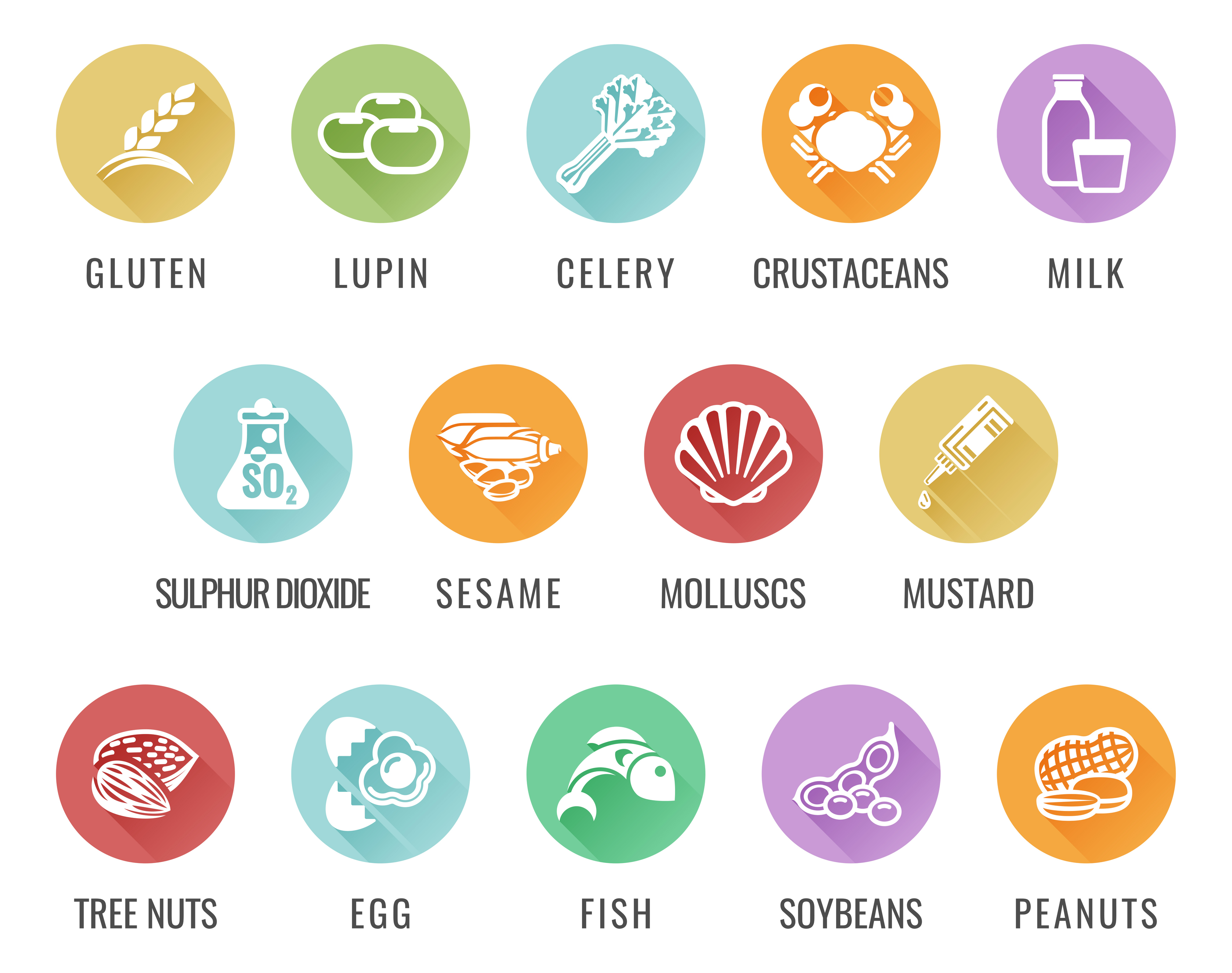Natasha’s Law: new food labelling legislation comes into effect

From today, 1 October 2021, food companies will have to adhere to stricter food labelling rules as Natasha’s Law comes into effect in England, Wales and Northern Ireland. The law requires that all food that is pre-packed for direct sale (PPDS) must display a label with a full ingredient list including the 14 allergens. Allergens include milk, fish, tree nuts, crustaceans, cereals containing gluten, eggs, peanuts, celery, soybean, lupin, molluscs, mustard, sesame, sulphur dioxide and sulphites.
The new legislation aims to prevent food-related illnesses and even death and has been welcomed by people suffering with food allergies. Allergy sufferers will be able to purchase a large number of products with confidence, as all ingredients and allergens will be clearly displayed on the food labels.
Pre-wrapped sandwiches and salads, fast food that’s already in packaging before ordered by a customer, and pre-wrapped supermarket items such as cheeses and meat from the deli counter will all have to display a full list of ingredients.
Natasha’s Law is named after 15-year-old Natasha Ednan-Laperouse, who, in July 2016, suffered a fatal allergic reaction after eating a Pret A Manger baguette. The teenager was allergic to sesame seeds and was unaware they were contained in the sandwich she bought at Heathrow Airport because they weren’t listed on the product label. Natasha later went into anaphylactic shock and died.
“This is a huge step in helping improve the quality of life for around two million people living with food allergies in this country.“, saidFSA Chief Executive Emily Miles. “If these changes drive down the number of hospital admissions caused by food allergies, which has increased threefold over the past 20 years, and prevent further tragic deaths such as Natasha’s, that can only be a positive thing. “I understand how difficult the past 18 months have been for food businesses, and I am grateful for the effort that so many have made to prepare for the changes.”
Unless circumstances require immediate action, local authorities responsible for enforcing the law are being advised to take a proportionate and risk-based approach to breaches of the law. The FSA’s stance is that minor labelling mistakes are dealt with using extra guidance and support with the changes, especially during the early months of the legislation coming into effect.
Natasha’s parents, Nadim and Tanya Ednan-Laperouse, said: “The introduction of Natasha’s Law is a bittersweet moment for us. We are delighted that people with food allergies will now have great protection through improved labelling and we know in our hearts that Natasha would be very proud of a new law in her name. However, the new law also reminds us that Natasha’s death was completely avoidable.
“Natasha’s Law is about saving lives and marks a major milestone in our campaign to support people in this country with food allergies. This change in the law will give people with food allergies confidence when they are buying pre-packaged food for direct sale such as sandwiches and salads. Everyone should be able to consume food safely.”
The FSA has been helping businesses to prepare for the changes for over a year, to understand the rules and which products are covered by the law, to provide tools and labelling guidance and sector-specific advice, which is available on their online PPDS Hub.
“Transparency around allergens is a key issue for our customers and the out-of-home sector continues to support the Government’s agenda on improving food safety and clarity of information available.”, Kate Nicholls, CEO of UK Hospitality, commented. “We continue to work in partnership with the FSA to ensure this new legislation is clear for food businesses, customers and enforcement bodies, and we support the proposed proportionate and risk-based approach to implementing the new rules.”
The Food Standard Agency is advising consumers to inform food business staff about any allergies they may suffer from. The FSA ran the #SpeakUpForAllergies campaign earlier this year to encouraged young people to be vocal about their allergies when ordering food.
The FSA’s website also provides a list of tips for safely buying takeaway food.








